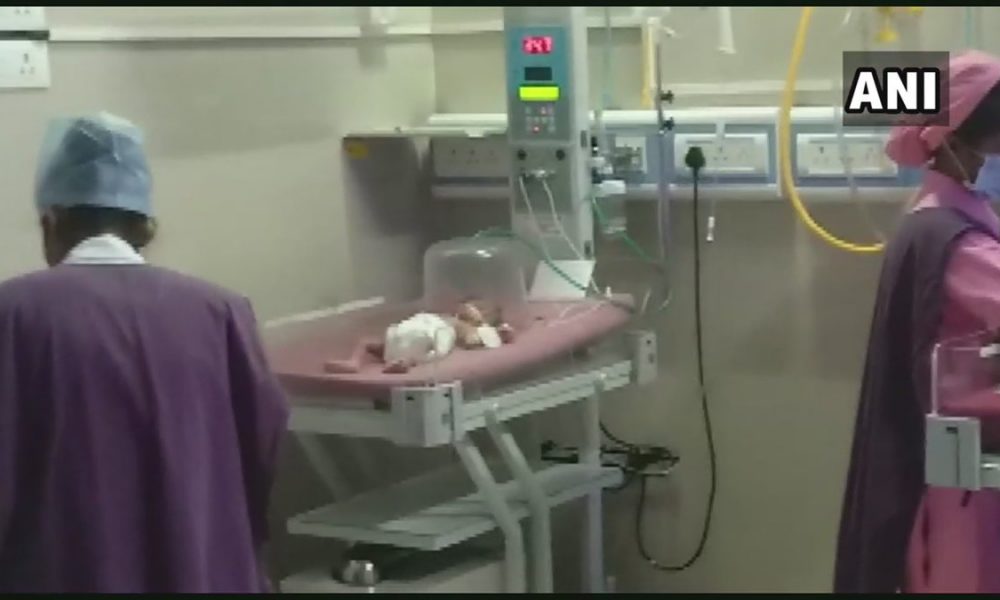
This hospital uses colour-coded bedsheets to protect newborns

The Special Newborn Care Unit(SNCU) of the Nashik civil hospital is always colourful. If it’s monday, the colour code for SNCU bedsheets is green, if it’s tuesday, the sheets are blue. Similarly, they have colour-code for each day of the week. Not only does it make the unit more attractive, but also this simple measure ensures that the bedsheets have been washed and sterilised by autoclave. They have even separate mops and buckets for each cubicle to protect the newborns from getting any infection.
Though the implementation of such infection control measures is complex, Maharashtra health department is moving ahead to reach its goal of bringing down neonatal mortality using these simple practical steps. According to 2017 Sample Registration System (SRS), in Maharashtra, the Infant Mortality rate (IMR) has reduced to 19 per 1,000 live births from 33 per 1,000 in 2008. The Neonatal Mortality Rate (NMR) declined from 24 per 1,000 live births in 2008 to 13 in SRS 2017, and the state comes a close third after Kerala and Tamil Nadu.
Dr Archana Patil, in-charge of the state family planning bureau headquartered in Pune and Additional Director of Health, Maharashtra said that a strict watch on hygiene measures has helped bring down the mortality rate of babies across the SNCUs in the state. Along with that, mentoring visits by expert paediatricians, weekly death audits at each of the state’s SNCUs have also started showing results.
Speaking to ANI, Pankaj Gajare, in charge of SNCU, Nashik’s Civil Hospital, said, “We use dark green bed-sheets on Monday, dark blue on Tuesday, pink on Wednesday, maroon on Thursday, saffron on Friday, light-green on Saturday and light-blue on Sunday. We do not repeat bed-sheets for infants for even a day.”
Just like the Nashik SNCU, there are a total of 37 SNCUs for sick neonates set up at 20 District/Civil Hospitals, 10 Women Hospitals and 7 Sub-Districts Hospitals in the state. Sick neonates are also referred from outside hospital. These are specialised newborn and sick childcare units at district hospitals with specialised equipment. These units have a minimum of 12 to 16 beds with a staff of three medical officers, eight nurses, and four support staff to provide round the clock services for a newborn or child requiring special care.
Source: The Indian Express, DNA
Image: ANI